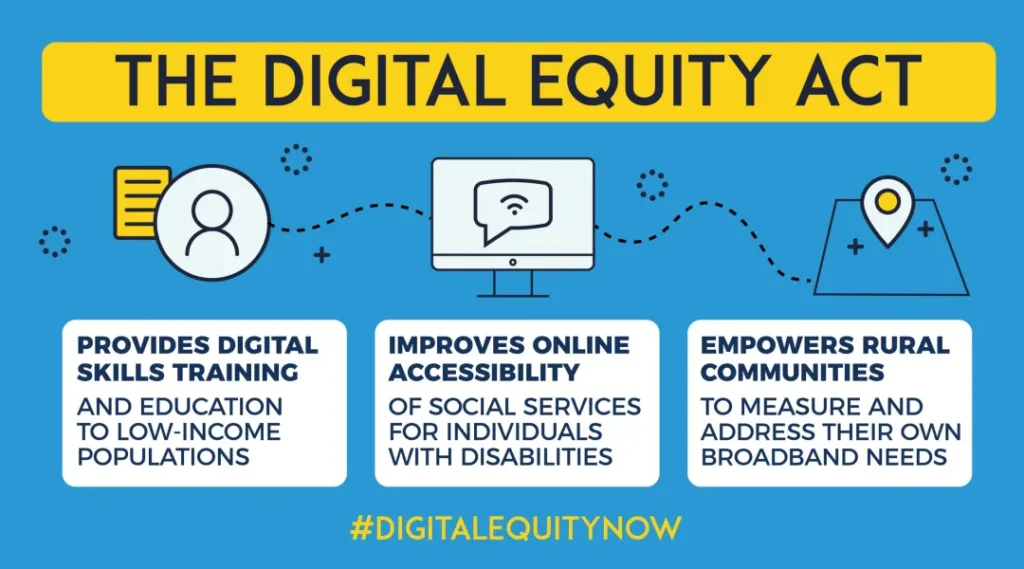
Digital Equity for All: Why Defunding the Digital Equity Act Would Harm Millions of Americans
In a troubling development, President Trump has threatened to cancel funding under the Digital Equity Act, claiming it is “unconstitutional and racist.” This position fundamentally misunderstands the Act’s purpose and would harm millions of Americans across diverse demographics if implemented.
The False Equivalence
Saying all digital equity is racist because it might serve minorities is like saying all public libraries are biased because they provide books to senior citizens. This reasoning fails to recognize that broad policy initiatives naturally serve diverse populations—it’s a feature, not a flaw.
The Digital Equity Act isn’t exclusively focused on minorities. It recognizes several “covered populations” including rural Americans, low-income households, persons with disabilities, veterans, and seniors. These groups cut across all racial and ethnic lines, political affiliations, and geographic regions.
The Real-World Impact
Canceling this funding would have immediate, harmful consequences for:
Rural Communities: For many rural Americans, geographical remoteness translates into limited access to healthcare providers, educational opportunities, government services, and even social connections. When winter storms close roads or when mobility issues make travel difficult, this isolation intensifies. Broadband connectivity and digital skills offer a powerful antidote to this isolation, creating virtual bridges where physical ones are impractical.
Seniors: As healthcare, government services, and social connections increasingly move online, older Americans without digital access face isolation and barriers to essential services. During the pandemic, we saw how critical digital connectivity became for telehealth appointments and maintaining family connections. Yet millions of older Americans lack the skills and devices needed to stay connected, healthy, and active participants in society.
Veterans: Many of our nation’s heroes live in rural areas or face economic challenges. Digital equity funding helps them access VA benefits, telehealth services, and employment opportunities.
People with Disabilities: Digital tools and internet access provide transformative opportunities for independence and participation in society. Removing funding would disproportionately impact those who rely on assistive technologies and remote services.
Low-Income Families: Without affordable internet access, children cannot complete homework, parents struggle to find employment, and families miss out on opportunities to improve their economic situation.
The Ripple Effects
Beyond direct impacts, canceling this funding would create broader societal problems:
Economic Competitiveness: Nations investing heavily in digital infrastructure will outpace the U.S. in innovation and economic growth. Our workforce needs digital skills to remain competitive globally.
Educational Achievement: Students without reliable internet access fall behind their connected peers—a gap that compounds over time and limits future opportunities.
Public Health: Telehealth services have become essential components of our healthcare system. Limiting digital access makes pandemic response more difficult and reduces healthcare options in underserved areas.
Civic Participation: As government services move online, those without digital access face barriers to engaging with their representatives, accessing public information, and participating in democratic processes.
Moving Forward
The Digital Equity Act represents a common-sense approach to ensuring that all Americans can participate in our increasingly digital society. Its inclusive design isn’t a weakness—it’s precisely what makes it effective policy.
Rather than dismantling programs that serve diverse populations across America, we should strengthen them. Digital equity isn’t a partisan issue; it’s about ensuring that no Americans are left behind as technology transforms every aspect of our lives.
The real question isn’t whether we can afford to fund digital equity initiatives. It’s whether we can afford not to.
